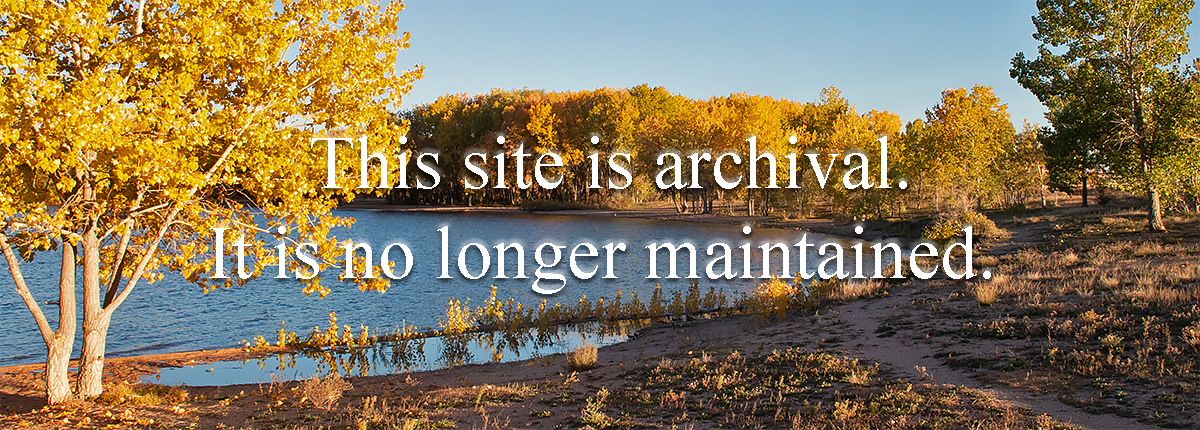Denver Audubon’s Appeal
(updated 10/11/18)
On December 15, 2017, the District Court ruled in favor of the US Army Corps of Engineers’ decision to proceed with the Chatfield Reallocation Project, based on its October 2013 plan to increase storage space in Chatfield Reservoir by 20,000 acre-feet. Denver Audubon’s request to protect the park while the litigation plays out was denied.
Denver Audubon filed a notice of appeal on January 2, 2018. Oral arguments for Denver Audubon’s suit to stop the massive environmental damage that the Chatfield Reallocation Project is doing to Chatfield State Park were held on Monday, September 24, 2018, in Courtroom IV of Byron White United States Courthouse in Denver, Colorado.
“We were disappointed, but not surprised, by the District Court’s ruling on our case and have filed our appeal in hopes of saving Chatfield State Park from this wrong-headed project,” said Polly Reetz, Conservation Chairman for the Society.
“Unfortunately the Corps of Engineers selected the most environmentally damaging alternative for the Chatfield project, one which will provide only a highly unreliable water supply yet cause substantial environmental damage to Chatfield State Park, one of the State’s most heavily used and biologically diverse State Parks,” noted Karl Brummert, Denver Audubon Executive Director.
“Colorado will lose cottonwood forests, wetlands, and free-flowing streams heavily used by recreationists and essential for wildlife, including the threatened Preble’s meadow jumping mouse. In return we get acres and acres of barren mud flats, for what the Corps determined to be ‘0’ dependable yield – the amount of water the project could reliably provide,” Board Member Ann Bonnell said.
In Colorado Parks and Wildlife’s Fish, Wildlife and Recreation Mitigation Plan the agency noted that while historic reservoir operations have seen approximate water level fluctuations of up to 9 feet, the project will add up to 12 feet of water fluctuation, and concluded that the resulting “fluctuation zone” could be up to 21 vertical feet; the park would lose 587 acres of wildlife habitat and recreational land. The Corps estimated that the reservoir would fill only 2 or 3 years out of 10. The project has been touted as environmental restoration for the South Platte in Denver but the Corps’ own studies show that the river’s flows would decrease 9 months out of 12 and increase only one month out of 12.
Chatfield State Park hosts over 1.6 million visitors a year, with opportunities for a wide variety of recreational activities, including boating, fishing, camping, hot-air balloon rides, horseback rides, hiking, trail running, bird-watching, nature photography, bike riding, and scuba diving. It also provides a great diversity of wildlife habitats that support 375 species of birds, and has been designated an Important Bird Area by the National Audubon Society. Denver Audubon asserts that the Corps did not seriously consider a number of sound, reasonable alternatives that would do less environmental damage, including increased water conservation, use of space in Rueter-Hess reservoir, storing water in underground aquifers, and storage in re-purposed gravel pits like the South Platte Reservoir near Chatfield.
“We do need to augment our water supplies, but we need to do it in a smart way, especially when other alternatives are achievable that do not destroy the outdoor recreation and wildlife resources so important to Colorado residents. Water conservation must be the foundation for meeting future water needs,” said Gene Reetz, Audubon Technical Advisor.
